@darkskywishes is my personal blog.This is a sideblog for Attack on Titan and Levi-related content. She/Her/Hers and 28 y/o. I write meta and reblog other AoT-related meta and content.Primarily a Levi-centric blog, but I write about other characters, too.
Don't wanna be here? Send us removal request.
Text
I miss them

#Brokeback Mountain vibes#love this#aot.art#art.jean#art.marco#r: jean x marco#c: jean kirstein#c: marco bodt#q
1K notes
·
View notes
Text

Hehehehe😄
#so cute#aot.art#art.vets#art.erwin#art.miche#art.nanaba#art.hange#art.moblit#c: levi ackerman#c: erwin smith#c: hange zoe#c: miche zacharias#c: nanaba#c: moblit berner
294 notes
·
View notes
Text

sketches by me❤️❤️ he’s so
15 notes
·
View notes
Text

And finally, to complete my Levi series by Ruvel Abril, I had this piece done of Levi as a boy in the Underground. I thought it would go really well with all my other pieces by Ruvel, since each in its way depicts different times during Levi's life. I think this one turned out so beautifully! It really captures the bleak reality of Levi's childhood in the Underground; the isolation and loneliness of growing up without anybody to care for him, and so he's having completely to care for himself. I also love how the image tells a story. Levi's roughed up, and so you can imagine he's been in some kind of fight or struggle, having to tend to his wounds, which again emphasizes the loneliness of his existence at this point, as does the stoic expression he has, as if he's plenty used to this kind of thing. And yet, it's also obvious how young he is, really highlighting the tragedy of this little kid living this kind of life. And as always, I'm totally blown away by the incredible detail Ruvel manages, both with Levi himself, and the background, which tells a story of its own! Thank you so much Ruvel!
45 notes
·
View notes
Text
Shipping Stance
I felt the need to write one of these, given how much unnecessary discourse there is around shipping in the Attack on Titan fandom, especially where Levi is concerned.
First, there is not a single Levi ship that is canon, and that’s perfectly okay. A ship doesn’t need to be canon to be enjoyed. Part of the joy of fandom is imagining characters in scenarios and dynamics beyond what we see in canon; there’s nothing wrong with exploring relationships that never appear in the source material. Shipping is a creative and personal experience, and no one should be harassed or belittled for the pairings they enjoy. It's meant to be fun. I will never harass or shame anyone for shipping something I don’t personally like, and I expect the same respect in return.
Personally, I don’t really consider myself a shipper in the traditional sense—I don’t feel strongly enough about any one pairing to consume or seek out content exclusively focused on it—however, I do participate in Levi multi-shipping and enjoy exploring a variety of dynamics involving him. The main pairings I enjoy include Erwin/Levi, Hange/Levi, Levi/Onyankopon, and Levi/Petra. I also enjoy a few other ships like Furlan/Levi and Levi/Miche. (I list names alphabetically in pairings—this is not a statement about top/bottom dynamics, which I find irrelevant).
While I don’t participate in self-shipping or read x reader fics myself, I fully support anyone who does if it brings them comfort or joy. There is no hierarchy of “acceptable” ships: self-shipping, rarepairs, canon-divergent ships, multi-shipping, etc.—everything is valid. No type of shipping is superior to others.
I also want to be clear that debates or harassment about Levi’s sexuality have no place on my blog or in respectful fandom spaces. It’s completely normal for people to have their own headcanons about his sexuality or to prefer certain kinds of fics. Personally, I headcanon Levi as asexual or queer in some way, but that doesn’t mean others can’t see him differently. Headcanons are personal interpretations, not facts everyone has to share. Levi's sexuality is never discussed or explicitly confirmed in canon; thus, he has no canon sexuality. Any assumptions beyond what is shown are simply individual perspectives.
At the end of the day, shipping should be a source of creativity and connection, not division or hostility. Let’s strive to respect each other’s preferences and enjoy the fandom in peace.
#shipping stance#attack on titan#Levi ackerman#shipping#my thoughts#about me#c: levi ackerman#@jayteacups I stole this idea from you lol
17 notes
·
View notes
Text

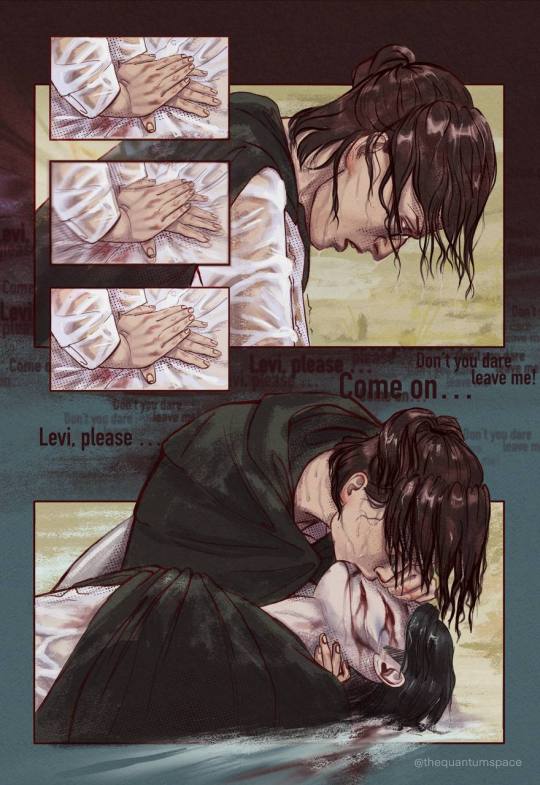

#holy shit wow#this is amazing#my heart Hurts#aot.art#art.levi#art.hange#r: hange & levi#c: levi ackerman#c: hange zoe
405 notes
·
View notes
Text
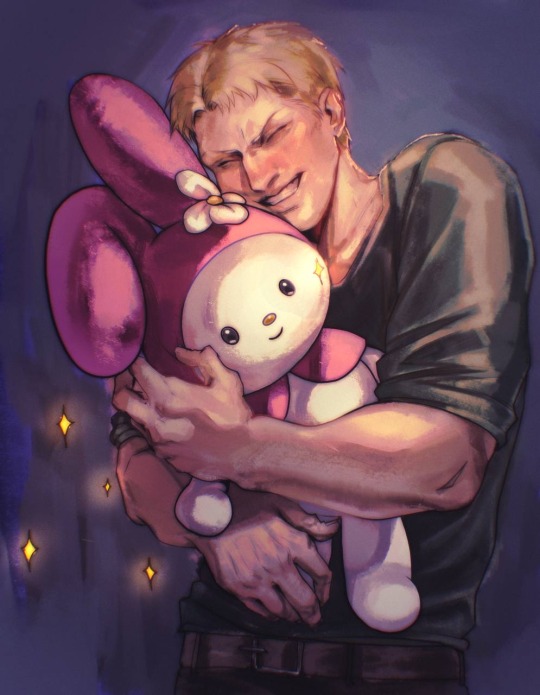
one of my favorite 2024 artworks that was started to test brushes haha, but it turned out to be too cute, so much so that I was surprised (like «oh my god, did I really do this?»)
545 notes
·
View notes
Text
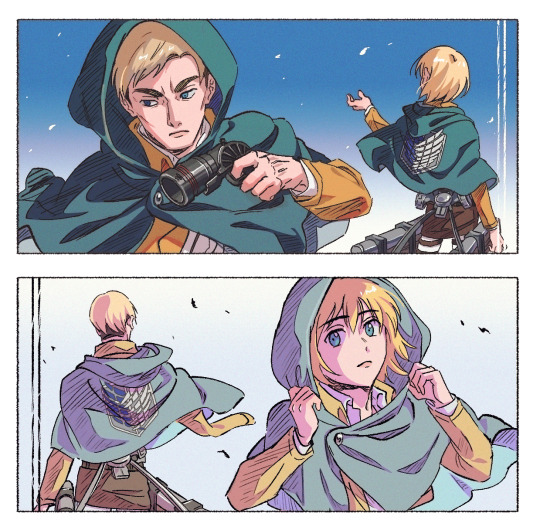
167 notes
·
View notes
Text
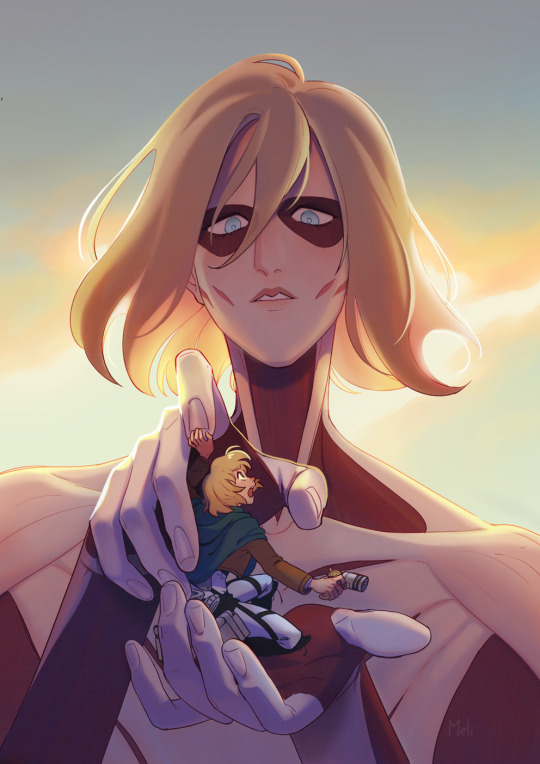
Enemies (?)
387 notes
·
View notes
Text

She tasted like the tea she always steeped for him during late nights when they'd go through paperwork together, mixed with the faint bite of the scotch she had tasted earlier. The bitterness of the strong drink had tempered to something resembling a half-citrus, half-earthy aftertaste. Almost sweet. Smooth.
- excerpt from Mine (Part 3 of the Telomeres series of Rivetra one-shots about a world where Petra lives).
65 notes
·
View notes
Text

And he took her all in. Every fiber of her being. Every breath, every freckle, every scar. Down to the very telomeres in her cells– the fragile ends of life's thread that marked how long she has left in this world.
- excerpt from Telomeres (a Rivetra one-shot series about a world where Petra lives)
132 notes
·
View notes
Text
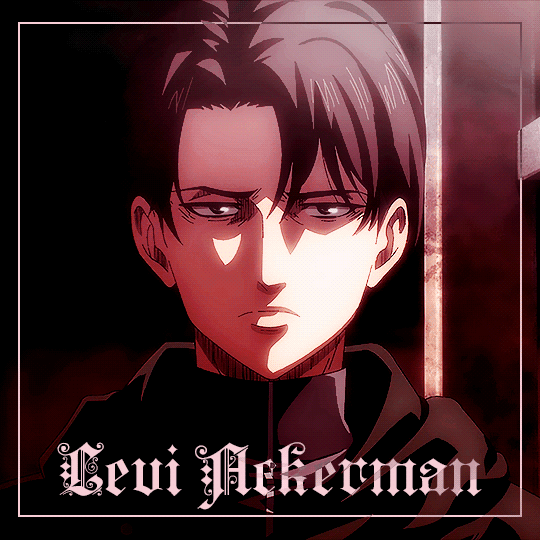
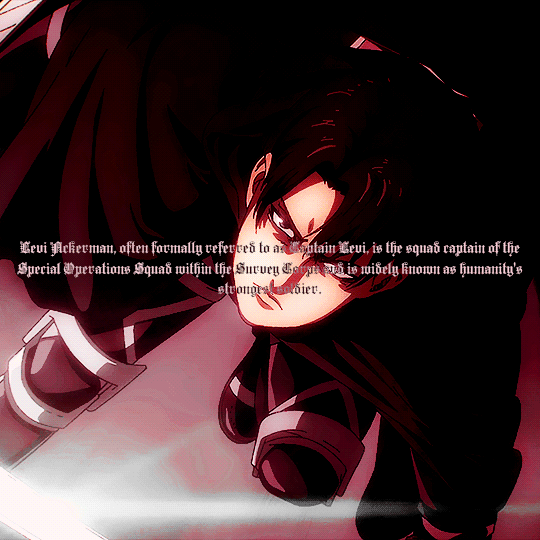
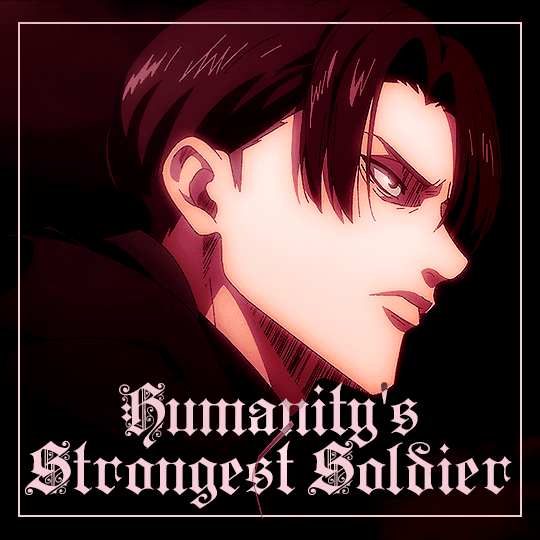
@animangacreators Challenge #38: Greek Pantheon
ares: make a creation about an animanga character that is a soldier - Levi Ackerman
93 notes
·
View notes
Text





306 notes
·
View notes
Text

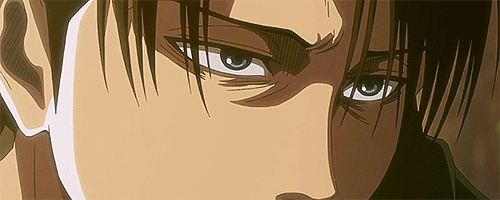
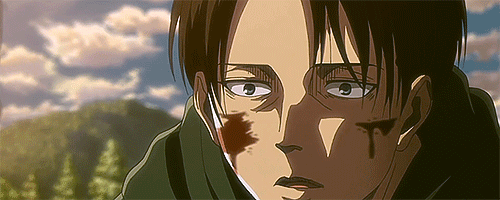
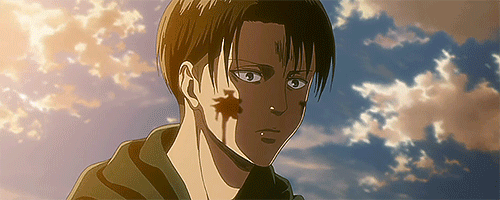
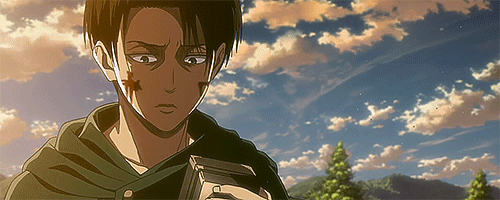
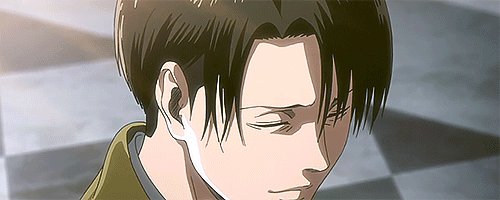
𝗅𝖾𝗏𝗂 𓂅 𝟥𝗑𝟣𝟢 (ᴩᴀʀᴛ 2)
167 notes
·
View notes
Text

Feral
386 notes
·
View notes
Text

will always love u Annie (ㅅ´ ˘ `)
122 notes
·
View notes
Text


a hero who never regretted, no matter what
i'm trying too, really
544 notes
·
View notes